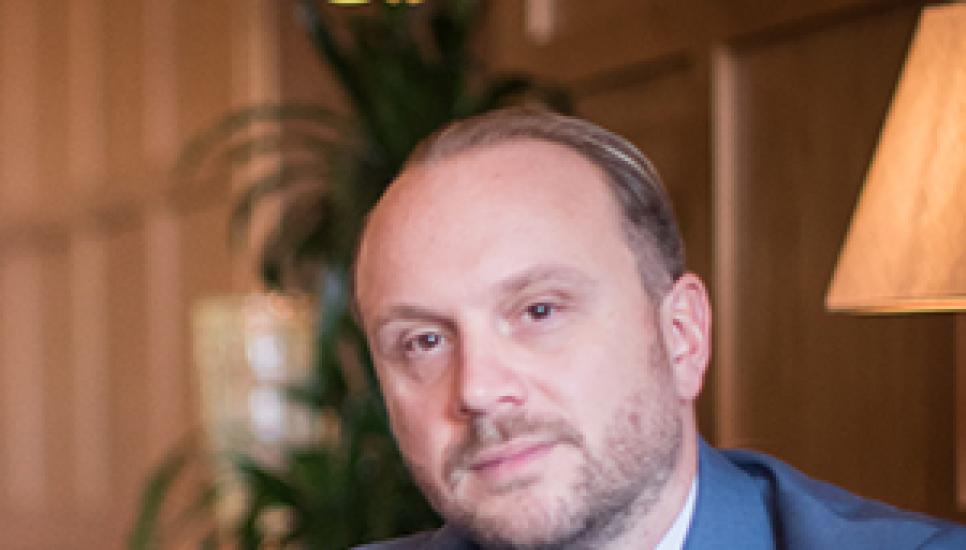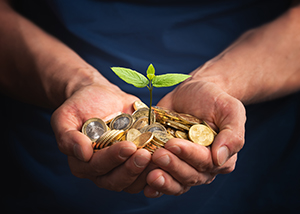Impact investing in the world of family offices

This is an extract from the How To Change The World Report, a guide to philanthropy and impact investing by family office recruiter, Agreus. Download the full report here.
From donating large sums of cash to re-purposing their family businesses and creating robust investment strategies to create everlasting change, family offices are making a huge impact in a variety of ways. In this report Paul Westall, co-founder of the family office recruiter Agreus Group, unpicks the best way for you to follow in their footsteps.
The first conclusion we make in the conversation about philanthropy and impact investing is that all change is great.
There is no one-size-fits-all approach to giving and no better strategy, person or organisation to make change. Any individual or group striving to make a positive impact should be celebrated. In this report we had a very simple ambition of facilitating each reader to navigate their own journey to making an impact, aware of all available options.
 From pure-play cash giving and donations of time or mentorship to making sustainable investments and strategically giving, we have discussed the many different methods of making change and, for each, there has been a clear pro and a clear con.
From pure-play cash giving and donations of time or mentorship to making sustainable investments and strategically giving, we have discussed the many different methods of making change and, for each, there has been a clear pro and a clear con.
Starting with structuring a foundation and the biggest drawback was time. KPMG partner Jo Bateson suggested for time-short families, using some of the 185,000 charities that already exist can be a best way to avoid the substantial risks, costs and significant administrative involvement required by structuring a foundation. The same thought was given to impact investing.
Marwitz family office principal Julian Marwitz offered his take on why impact investing was not for everyone. He spoke of the time, finances and due diligence required and how philanthropy might be the better option for family offices wanting to make an impact without the time, energy or resources required to manage another element in their existing portfolio.
However, impact investing, as the title might suggest, hosts the ability to make the biggest impact of them all and it is all due to its ability to generate a return.
An important element of this report was emphasising that family offices opting to make a return or reward are not driven by greed but motivated by excellence. After all, a donation can make great change and return social good but an investment that returns money can be used to re-fund and repeat the process. It is a gift that keeps on giving.
 The two realms do not need to run mutually exclusively either. Philanthropy, as fellow-principal Anders Johansson mentioned, is an inroad into impact investing. When concentrating on one or several of the UN's 17 sutainability goals, you can become acquainted with the community you are striving to change, its people and its customs and this offers a platform for a more tailored investment strategy, able to reduce risk and elevate your expertise.
The two realms do not need to run mutually exclusively either. Philanthropy, as fellow-principal Anders Johansson mentioned, is an inroad into impact investing. When concentrating on one or several of the UN's 17 sutainability goals, you can become acquainted with the community you are striving to change, its people and its customs and this offers a platform for a more tailored investment strategy, able to reduce risk and elevate your expertise.
This was echoed by head of family office Geoffroy Dedieu who believes that a combined approach will have a deep impact on the sustainable development goals. After all, why follow one path when you can follow three? He offered the example of a European family who has a foundation in Switzerland, an impact fund in London and an incubator in Hong Kong.
These 17 goals also offer a very important reminder that impact investing is not just about preserving the environment and creating a cleaner, greener and better world. It involves that of course but that is not the end of it. From supporting start-up businesses who will go onto make their own impact to mentoring aspiring leaders and investing sustainably in companies who, for example, employ a 50% female board to improve gender balance and diversity. There are 17 goals to be achieved and this should not be forgotten.
Other important lessons we learned during the production of this report included how doing good is great for business, why purpose, passion and good governance create the foundation for giving and why you must, along with the good, be prepared for the bad which comes in the form of scrutiny, due diligence and regulation, often from the charity commission.
 With great responsibility comes great reward and while it might not always be possible to impartially measure the success of a social impact, you can certainly create a benchmark for good. From re-purposing similar indexes to lifting business metrics and finding as many quantifiable targets as possible, we have illustrated how you can not only create a sophisticated strategy, able to make great returns but you can measure their success and use it to make an even greater impact.
With great responsibility comes great reward and while it might not always be possible to impartially measure the success of a social impact, you can certainly create a benchmark for good. From re-purposing similar indexes to lifting business metrics and finding as many quantifiable targets as possible, we have illustrated how you can not only create a sophisticated strategy, able to make great returns but you can measure their success and use it to make an even greater impact.
From having powerful peer discussion to benchmarking success and attracting the right type of talent, this report covers the advice, tools and next steps you need to make an impact. How will you achieve it?
Download the full report here.






